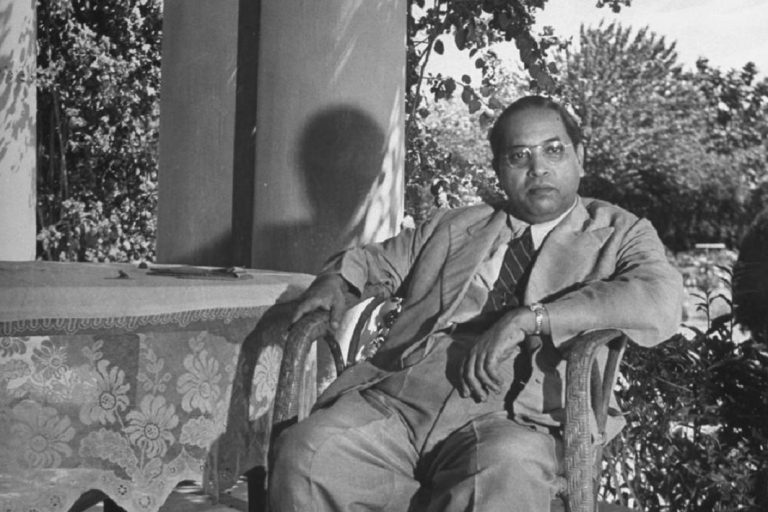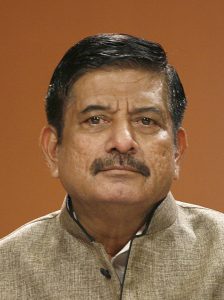
Article 82 of the constitution provides for re-adjustment of constituencies and allotment of seats in the House of People to the States. The territorial division/adjustment of constituencies is to be done in the manner that Parliament may determine by law. Article 81 limits the total number of seats for the House of People to 530, directly elected from states and not more than 20 from Union Territories. Article 170 declares that in each state, the legislative assembly shall not have more than 500 members, and not less than 60 members, chosen by direct election.
Article 330 mandates reservation of seats for SC and ST in the Lok Sabha from each state. Article 332 of the constitution provides for reservation of SC & ST seats in the legislative assembly of each state. Accordingly, Section 3 Schedule I & Section 7 & 7A Schedule II of the Representation of the People Act 1950 works out the total seats to be reserved for SC & ST in each state for the Lok Sabha as well as seats to be reserved in the assembly of each state.
The commission appointed under the Delimitation Act, 2002 has recommended re-adjustment of constituencies and reservation of constituencies for SC & ST. And while doing so, it was guided by the guidelines in Section 9 of the Act which reads:
(a) all constituencies shall, as far as practicable, be geographically compact areas, and in delimiting them regard shall be had to physical features, existing boundaries of administrative units, facilities of communication and public convenience;
(b) every assembly constituency shall be so delimited as to fall wholly within one parliamentary constituency;
(c) constituencies in which seats are reserved for the Scheduled Castes shall be distributed in different parts of the State and located, as far as practicable, in those areas where the proportion of their population to the total is comparatively large; and
(d) constituencies in which seats are reserved for ST shall, as far as practicable, be located in areas where the proportion of their population to the total is the largest.
The criterion for reservation of a constituency for SC & ST on the basis of comparative population strength is irrational and ultra vires Article 14. When a constituency is reserved for SC & ST, the contest for votes will be only between SCs or STs, as the case may be. Considering the comparative population strength of SCs & STs as a basis for reservation is preposterous and the norm does not give any added advantage to the contesting SC & ST candidates.
The objective of Article 330 & 332 is only to provide adequate representation to members of the SC & ST community in Parliament and state assemblies. The guideline (c) & (d) virtually makes the reserved constituency locked for over a decade till the next delimitation process takes place. This legislative policy is arbitrary and unduly favours a person of SC & ST community in the reserved constituency to contest and get elected continuously. The persons belonging to SC & ST in other constituencies are denied the opportunity to contest and get elected although they are placed with similar social and economical disadvantage and constitute the same class as the SC & ST in the reserved constituency. There is no intelligible differentia to discriminate them.
Article 14 mandates equality before law and equal treatment by law which includes equal opportunity. The present system of locking up the constituency with reservation for decades has only pandered and pampered a few persons amongst SC & ST community, thus denying the opportunities to equally well deserved and talented people of SC & ST in other constituencies of the country and the states.
The Supreme Court, in the light of Article 329 of the constitution, held that the jurisdiction of the courts is barred in respect of the law made by Parliament vide Article 327 and the law made by the state legislature vide Article 328, in regard to delimitation of constituencies and allotment of seats. In Uttar Pradesh, from time to time, a number of other castes came to be included in the ST category. Thus, the ST population swelled warranting more number of seats to be reserved for them.
The Supreme Court, in Virendra Pratap & Anr. vs. Union of India, in the light of Article 330 & 332, directed the Election Commission to take proper steps for ascertaining the total population of ST and give them proportional reservation in elections.
There is a need to have a re-look at the reservation policy in order to provide fair and equal opportunity to the people of SC & ST community in all constituencies of the states.
The judicial remedy of taking recourse to Supreme Court for declaring guidelines (c) & (d) of the Act violative of Article 14 is one option.
Parliament can also enact law vide Article 327 and appropriately amend the Delimitation Act and enact an appropriate provision of law to provide for rotation of the reservation of seats in all constituencies in the state on a turn to turn basis for the Lok Sabha and assemblies at every election. This would put to an end to undue advantage enjoyed by few of the leaders of the community and unfold an opportunity for SCs & STs, who may be numerically less in other constituencies, to get elected to Parliamentary institutions.
—The views expressed by the writer are personal
Lead Picture: DR BR Ambedkar was extremely concerned about the welfare of the Scheduled Castes and worked for their social, economic and political empowerment.


